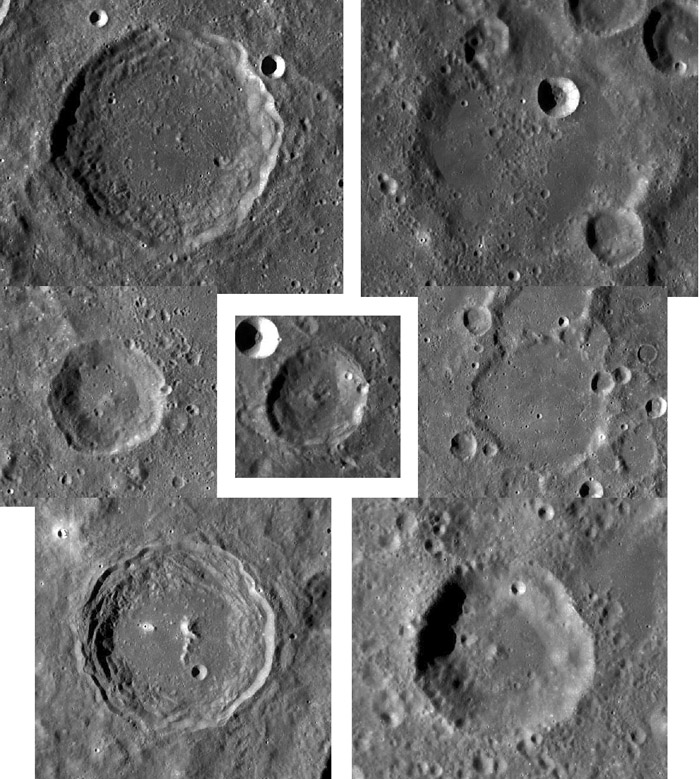Difference between revisions of "May 2, 2011"
| (One intermediate revision by the same user not shown) | |||
| Line 1: | Line 1: | ||
__NOTOC__ | __NOTOC__ | ||
=A Half Hours Work= | =A Half Hours Work= | ||
| + | <!-- Start of content --> | ||
<!-- ws:start:WikiTextHeadingRule:0:<h1> --> | <!-- ws:start:WikiTextHeadingRule:0:<h1> --> | ||
<!-- ws:start:WikiTextLocalImageRule:6:<img src="/file/view/LPOD-May2-11.jpg/224530074/LPOD-May2-11.jpg" alt="" title="" /> -->[[File:LPOD-May2-11.jpg|LPOD-May2-11.jpg]]<!-- ws:end:WikiTextLocalImageRule:6 --><br /> | <!-- ws:start:WikiTextLocalImageRule:6:<img src="/file/view/LPOD-May2-11.jpg/224530074/LPOD-May2-11.jpg" alt="" title="" /> -->[[File:LPOD-May2-11.jpg|LPOD-May2-11.jpg]]<!-- ws:end:WikiTextLocalImageRule:6 --><br /> | ||
<em>LRO WAC images</em><br /> | <em>LRO WAC images</em><br /> | ||
<br /> | <br /> | ||
| − | What do these craters have in common? They are all from a region of the Moon that previously had not been well imaged by spacecraft. And they are non-spectacular features that are more characteristic of the Moon than the beauties we normally seek out. I did screen captures of these images from LRO WAC mosaics from the [http://wms.lroc.asu.edu/lroc?commit=custom_zoom&zoom=0 LROC WMS Image Map] and from the [http://target.lroc.asu.edu/da/qmap.html LRO WAC Quick Map]. I selected these craters because the LRO higher Sun views complemented the lower illumination Lunar Orbiter images already posted in the [ | + | What do these craters have in common? They are all from a region of the Moon that previously had not been well imaged by spacecraft. And they are non-spectacular features that are more characteristic of the Moon than the beauties we normally seek out. I did screen captures of these images from LRO WAC mosaics from the [http://wms.lroc.asu.edu/lroc?commit=custom_zoom&zoom=0 LROC WMS Image Map] and from the [http://target.lroc.asu.edu/da/qmap.html LRO WAC Quick Map]. I selected these craters because the LRO higher Sun views complemented the lower illumination Lunar Orbiter images already posted in the [https://the-moon.us/wiki/Introduction Moon-Wiki] pages for these craters, making the wiki even more valuable. Does anyone recognize these B list craters?<br /> |
<br /> | <br /> | ||
<em>[mailto:tychocrater@yahoo.com Chuck Wood]</em><br /> | <em>[mailto:tychocrater@yahoo.com Chuck Wood]</em><br /> | ||
| Line 12: | Line 13: | ||
<p><b>Tomorrow's LPOD:</b> [[May 3, 2011|Forgotten Moon]] </p> | <p><b>Tomorrow's LPOD:</b> [[May 3, 2011|Forgotten Moon]] </p> | ||
<hr /> | <hr /> | ||
| + | {{wiki/ArticleFooter}} | ||
Latest revision as of 19:32, 18 August 2018
A Half Hours Work

LRO WAC images
What do these craters have in common? They are all from a region of the Moon that previously had not been well imaged by spacecraft. And they are non-spectacular features that are more characteristic of the Moon than the beauties we normally seek out. I did screen captures of these images from LRO WAC mosaics from the LROC WMS Image Map and from the LRO WAC Quick Map. I selected these craters because the LRO higher Sun views complemented the lower illumination Lunar Orbiter images already posted in the Moon-Wiki pages for these craters, making the wiki even more valuable. Does anyone recognize these B list craters?
Chuck Wood
Yesterday's LPOD: A Little Slice of Solitude
Tomorrow's LPOD: Forgotten Moon
COMMENTS?
Register, Log in, and join in the comments.



